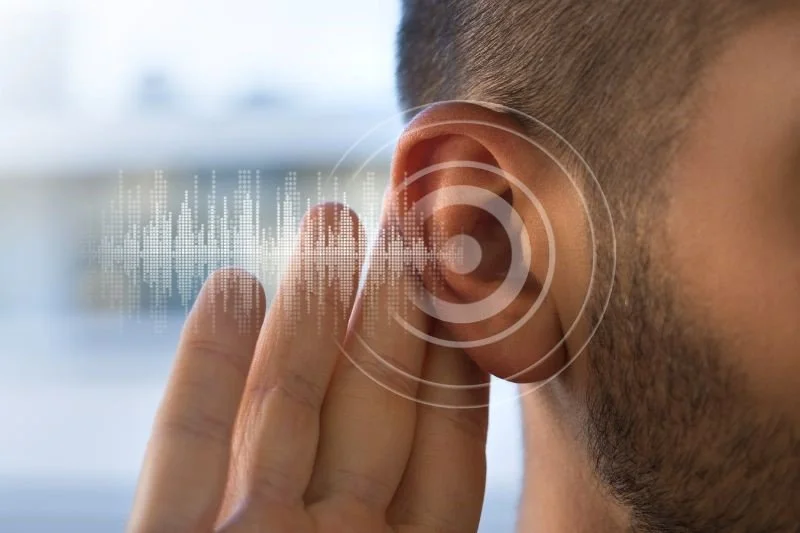Listen Up!
For a caregiver, listening is a critically important skill that you need to develop, hone, and employ every day.
Dear Caregivers,
With all the turmoil that is roiling our news feeds and our daily lives, domestically and internationally, one thing that I’m happy to hear mentioned more frequently in the global conversation is the importance of listening.
After all, a fundamental part of the human condition is different people having differing points of view. How can you resolve anything with someone, and have a plan to move forward towards a common goal, unless you understand their needs and concerns? And how will you ever understand someone's needs and concerns unless you take the time to listen to them?
For a caregiver, listening is a critically important skill that you need to develop, hone, and employ every day. It’s essential to your success! You need to listen to your loved one’s medical team, your family and friends, to your loved one, and most of all, to yourself. In particular, caring for someone with Alzheimer's requires a unique set of listening skills, given the complexities and challenges posed by the disease.
Here are some critical listening skills specifically tailored for caregivers, and they apply to communicating to your loved one, as well as communicating with family, friends, and your caregiving community:
Practice Patience and Understanding: Everyone occasionally needs a moment to gather their thoughts, especially people with Alzheimer's, who often struggle with expressing themselves. As a caregiver, being patient and providing your loved one ample time to convey their thoughts without rushing or interrupting is crucial.
Engage Your Empathy: Always try to understand and feel the emotions your loved one is experiencing. Even if their narrative seems disjointed, the emotions they express are real and valid. Showing empathy can help you connect on a deeper level.
Pay Attention to Non-Verbal Cues: Since verbal communication can become challenging, non-verbal cues become even more vital. Pay attention to your loved one’s facial expressions, body language, and gestures. Often, non-verbal cues can give context or add depth to what is being said.
Practice “Active” Listening: Fully engage in your conversation with your loved one. This means concentrating, understanding, and responding, showing that you value what they are saying. At the same time, avoid trying to formulate your response while they are speaking. If you are doing that, you are not really fully engaged in listening. Try to focus solely on hearing and understanding what your loved one is saying.
Avoid Arguing or Correcting: Your loved one might recall things differently from what you know is true. But instead of correcting them or arguing, go along with their reality unless it poses a risk, employing an approach called "therapeutic fibbing." Stay neutral and avoid showing signs of judgment or criticism.
Use Validation: Acknowledge your loved one’s feelings and emotions. Even if their understanding of a situation isn't accurate, their feelings are genuine. For example, if they express sadness over a deceased loved one as if the loss just happened, validate those feelings of grief, regardless.
Limit Distractions for Both of You: Try to communicate in a quiet environment free from distractions. Be present in the moment. Put away distractions such as your phone or other electronic devices. Make eye contact and face your loved one, or whoever you are speaking with. This shows respect, and interest.
Stay Calm and Reassuring: Remember that your loved one, because of Alzheimer's, can become anxious, agitated, or upset. Therefore your tone of voice and approach should be calming. Reassure them that they are safe and loved. If the subject of your conversation is emotionally charged, strive to remain calm and composed. It's essential to understand their point of view, before seeking to be understood yourself.
Practice "Reflective Listening": Reflective Listening is a technique that involves repeating back or summarizing what you've heard, to confirm your understanding. It can help bridge gaps in communication. You can use phrases like "What I hear you saying is..." or "Do you mean...?" to ensure you've understood correctly. Try to fully concentrate, understand, respond, and remember what your loved one says — go beyond just "hearing" them.
Remember, your loved one may have difficulty with memory, understanding, and communication, but they still have emotions, needs, and a desire for connection. Your role as a caregiver in listening effectively is critical in providing them with the best care and maintaining their dignity.
Here are some other ideas for promoting better listening:
Communicating With Your Loved One:
Communicating with a loved one with Alzheimer's can be challenging, as the illness robs your loved one of their abilities to remember and process information during a conversation. Here are ways you can make it easier for both of you to communicate effectively.
Finding your Caregiving Village:
There is a lot we can all learn from each other as we endure our individual journeys as caregivers. There are some needs and feelings that are universal and learning how others manage and navigate can often be hugely comforting. Here’s how to find your caregiving village.
Communicating with Your Caregiving Community:
As the primary advocate for your loved one, you need to feel confident and comfortable adding your voice to the conversations about their care. Here’s how to communicate with your healthcare providers.
Remember, if you can’t find the information you need on our website, you can always “Ask NAN” by clicking on this link.
Best,
Rosemary D Laird, MD, MHSA
Founder and Chief Medical Officer
“You cannot truly listen to anyone and do anything else at the same time.”
— M. Scott Peck




